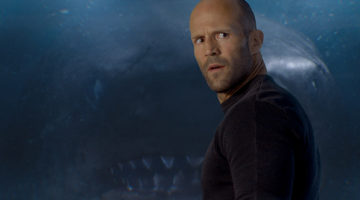Review: Demolition
There are many manifestations of grief, so who are we to say how one may cope with the sudden tragic loss of a loved one? A quirky relationship with a customer service representative, a need to be bluntly honest, and a lot of destructive behavior is how Davis Mitchell (Jake Gyllenhaal) responds.
A perfect blend of humour and heart make up Jean-Marc Vallées Demolition, a well-crafted if not overt story about one’s man loss in which he at point says, ‘Everything is a metaphor.’
These words and many other musings are put into letters following the death of his wife, and while the letters are to a vending machine company that owes him a dollar and change, or at least that bag of M&Ms he wanted, he pours his heart and mind into explaining the past and present.
Expert care and craftsmanship goes into Demolition, a film that evokes Vallée’s recent effort Wild, in which a story is told, non-linearly and with hallucinations and fantasies, about a plagued, off-beat individual seeking some sort of solace following a life altering event.
Whereas Wild’s real life protagonist set out on a trek through the Rockies, Davis is resigned to navigating the concrete confines of New York City, his pristine home and office, and his privileged life as a banker working for his father-in-law Phil (Chris Cooper).
Sudden tragedy paired with Gyllenhaal’s earnest sadness and confusion make Davis a likable character, even as we realize he doesn’t really know what he’s doing, and that he isn’t necessarily the most honest or helpful guy. But he is vulnerable, and trying. Unfortunately for some around him, he has taken literally advice that told him to be happy is to get to the core of things, to find out all that work together to make something run healthy.
He doesn’t look inward, but instead takes to tearing down material things around him, taking pleasure in dismantling a cappuccino machine, a computer. While taking apart objects, and ignoring his job and grieving in-laws, Davis finds interest in a shy but curious single mother Karen (Naomi Watts) and her rebellious son Chris (Judah Lewis).
In succession he bonds with both, but certainly not by any normal conventions. He writes letters to Karen before showing up at her house unannounced, and with Chris, he explains proper cursing, and lets him shoot a handgun.
That Davis, and indeed the film, seem aimless, matters not because of how compelling it is to watch. However absurd his actions are, they seem grounded in reality. Vallée is a captivating filmmaker, making the mundane curious and the strange normal. He also does well to disguise a script that talks a lot and says nothing.
When Demolition takes an unnecessary step or two towards the end, it’s disheartening, and makes its fault even more glaring. Revelations and incidents arise in the finale that contrast what has been largely a film about the actions of one person. Davis engages in strange and funny conversations, while others look on and worry, but a third act brings characters together pushing them towards confrontations that are out of place, as if there needs to be something momentous to close out this story.
It’s a case of trying to do far too much when it was never required to begin with, yet Gyllenhaal’s great showing and a talented filmmaker make Demolition engaging throughout.
[star v=3]




